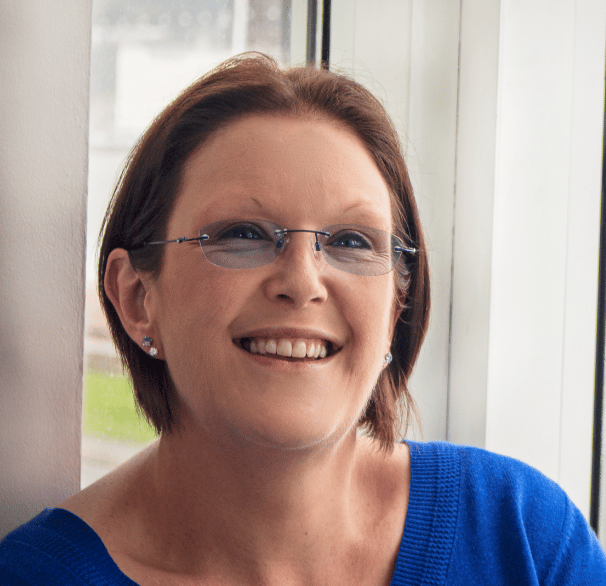Do you keep yourself well as you work? Would you suggest that someone in their first job mirrors the ways in which you work?
In today’s World WellBeing Week feature, Karen Warren of KW Inner Strength explores the importance of maintaining physical and mental health in the workplace, offering practical tips on integrating wellbeing practices into your routine and fostering a supportive work environment for long-term productivity and resilience.
When I ask people if they look after their wellbeing at work, the answer is often ‘no way!’.
So, my next question is, why are you working in that way, when over time it’s likely to have an impact on your physical and mental health and wellbeing?
Will it matter if you don’t take a break today? Probably not. You might be a bit grumpier at the end of the day because you’re tired, but your physical and mental health and wellbeing won’t be significantly impacted because you’ve not taken a break for one day. But what about no break for a week? For months and years?
I’m often told “if I don’t take a break at lunchtime I can finish earlier and get on with the other life stuff” whatever the life stuff might be. And while that’s true in the short term, the impact of not taking a break can be significant if it becomes your normal over time. Your body and brain need time to rest and recover. Not for long, but enough time to reset, relax, nourish and hydrate to keep yourself well and able to work effectively for the next few hours.
Consider the ways in which you can keep yourself well as you work, to help you be in the best physical and mental health shape for when you don’t work. Work towards a long and healthy retirement to celebrate the efforts and achievements of your career. Please don’t be too exhausted, or worse, to enjoy it.
The structure of the five ways to wellbeing is a great way to keep yourself well and help other people to identify the ways in which they can do that.
Connect – think about who you’ll connect with to keep yourself well. Who are your safe, good energy people? The people who really listen to you when life is tough?
Be Active – being active doesn’t have to be through sport activity. Walking the dog, going for an evening stroll and kicking a ball about with the kids are great ways to keep yourself physically and mentally well.
Take Notice – take the time to notice the beautiful things that surround you. Your safe people, the blue sky, the summer flowers. Also try to notice your emotions. Acknowledging feelings of frustration, upset, disruption or anger is an important part of processing those feelings to keep yourself well.
Keep Learning – think about how you can take in new knowledge and information to stimulate your mind. It doesn’t have to be through formal education or courses. You can try a new recipe, listen to a different podcast or research a topic that you’re interested in. You could find out more about the destination for your next holiday. That will make you feel good.
Give (Offer Support to Others) – think about how you can support other people. It’s nice to be nice. It can make you both smile which is good for your wellbeing and theirs.
Think about how you keep yourself well as you work and have the conversation with your team. How will you keep yourselves and each other well? What commitments will you make to each other? In the first instance, if taking a break at lunchtime is something you and the team don’t usually do, you can make a commitment to each other that you’ll make time for a lunch break three times a week.
Having made the commitment, you can challenge each other with kindness and compassion if you notice that a colleague isn’t managing to take those breaks. By asking why, you can find out more and offer support to allow your colleague to take a break. If there’s a reluctance to change their behaviour, re-iterate that this is something you’re all finding difficult, because it’s different. But you’ve made a commitment to taking a break at lunch time, so you do expect to see that from everyone.
If a colleague says they don’t have time to take a break, suggest they give it a try. There’ll always be too much to do but once people start to feel the benefits of taking a break, they’re more likely to factor that into their everyday wellbeing behaviours.
The knock-on effects of positive wellbeing are significant. When you feel well, you’re more likely to communicate assertively, manage stress and anxiety effectively, feel positive and optimistic, and build resilience, which gives you the strength to tackle work and life challenges, and feel proud of your achievements.
If you wouldn’t recommend that anyone works in the way that you do, you might want to consider how you can make changes. Small changes matter. They can accumulate into positive physical and mental health benefits over time.
Wellbeing truths:
- No one will gift you your wellbeing, it’s up to you to make it a priority
- You’ll be more productive afterwards if you take a break
- There’ll always be too much to do
- No one will grant you permission to take a break, just do it anyway
You might be surprised at how people mirror your positive wellbeing behaviours once you factor them into your day, so be an agitator for positive change!
What will you do differently today?


